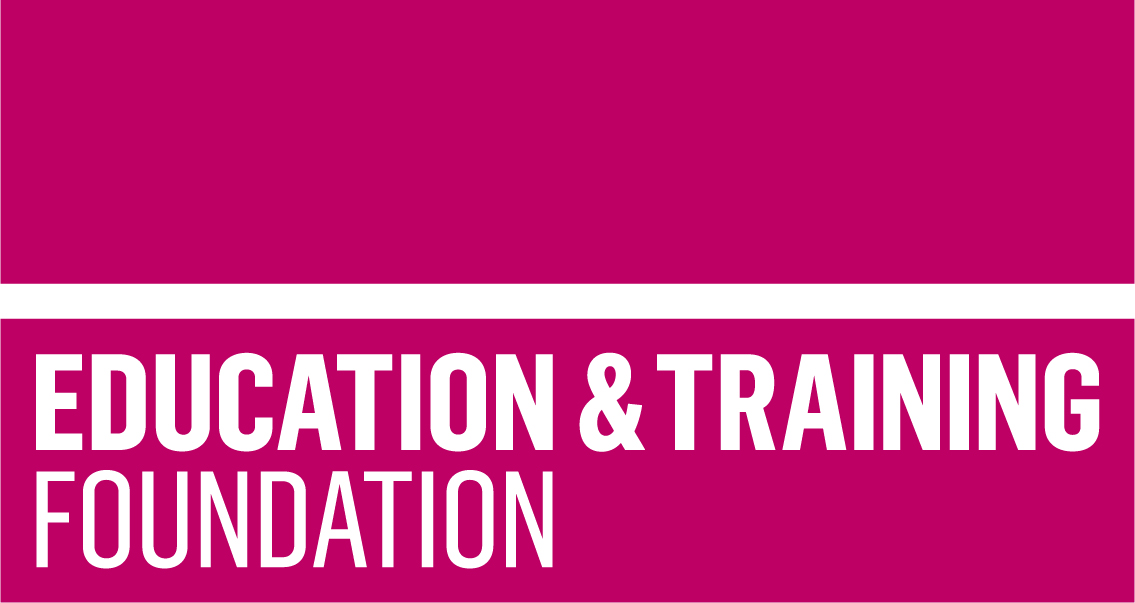How a badge of advanced professionalism could boost your career

After working in education for over 30 years, Sallyann Wright admits she had become a little “jaded”. With data collection being increasingly prioritised over creativity, teaching students with additional needs in secondary schools began to feel less fulfilling.
Moving into further education-her current role is at Dudley College of Technology teaching GCSE English resits-provided her with new impetus. Wright applied to join one of the first pilot cohorts to gain Advanced Teacher Status (ATS), a new status conferred by the Education and Training Foundation (ETF), which she’s due to complete in August this year. Her motivation, she says, was to “bring creativity and enjoyment back to GCSE English, and teaching in general, for both the learner and the teacher”.
As a badge of advanced professionalism in further education and training, ATS offers experienced teachers and trainers a structured opportunity to deepen knowledge and awareness about their own practice. It also provides an opportunity for teachers and trainers to develop their leadership skills by sharing their expertise with others, as well as contributing strategically to their organisation’s quality improvement.
While Wright was interested in furthering her career, she didn’t want to go down the management route. “I wanted to remain in teaching, but to teach other professionals. My options were to do a master’s degree or ATS, which presented me with a far more practical and exciting way to follow the professional path of my choice,” she says. “Now, I don’t feel jaded at all-that’s totally reversed. It’s opened doors, in fact, and made me ask questions of myself.”
Like Wright, Louise Ford was also looking for development opportunities when she signed up to ATS.
Working as a functional skills tutor for PM Training, an apprenticeship provider in Staffordshire, Ford gained her Qualified Teacher Learning and Skills (QTLS) status in 2006 and recently found herself wanting “to work towards the next level”.
Opportunities for self-progression
“I did ATS because I’m always looking for opportunities for self-progression,” she says. “It has delivered what I wanted it to, but it is hard work. You do have to put the hours in and be very organised. With two months of the course left to go, though, I’m on target to finish.”
As part of their work towards advanced accreditation, Ford and Wright have had to complete a portfolio of evidence that includes lesson plans, teaching observations, a reflective journal, a professional development plan, a piece of independent research and feedback demonstrating the successful development of others.
For Wright, the course has served to boost her confidence. “It’s empowering. I’ve got more self-belief as a result of doing ATS. I ask more questions, I speak up more. I’m also more experimental with my learners,” she says. “I like how it has inspired me to take risks and try out new approaches and methods.”
Ford, too, feels that her confidence has increased as a result of studying for ATS while her career path has “accelerated”.
As a result of the research project she embarked upon as part of her course, she was recruited by another apprenticeship provider. Before starting ATS, not only would she “never have imagined” changing job, but her new employer has also subsequently asked her to head up a project in line with her particular area of research. “I wouldn’t have been able to do it this time last year,” she says.
As a result of having more self-confidence through ATS, Ford also contacted a university academic “off the cuff” whose research interests tallied with her own. The two are now discussing potential collaborations, with Ford hoping it will be the start of many more.
Recognition of excellence
Stacy Mann has her own consultancy business training early years practitioners. Her motivation in undertaking ATS was to set her apart from other providers when competing for contracts. “There are so many early years trainers and consultants and I knew ATS would open up opportunities for me,” she says. “The word ‘advanced’ immediately captures employers’ attention. There’s a real recognition that I’m a leader in my field of expertise.’
For Mann, who completed her QTLS in 2016, the ATS represented “the next step” in her career.
Over the months, she’s found that the course has started to benefit her on different levels.
“I’m digging deeper into myself and it’s benefiting my practice. The course has pushed and challenged me. You’re asked to reflect a lot on your own practice, but I’ve found that very constructive,” she says. Mann also cites increased self-confidence. “I’ve come to value myself more through doing it. I know I’m a great teacher-I can say that now, but I wouldn’t have had the self-belief to make that statement 12 months ago,” she says.
Jill Westerman is the principal of Northern College in Barnsley and a member of the ATS steering group, who advised on its development. With recruitment about to begin for a new cohort of ATS practitioners, Westerman says that the badge of mastery in teaching and training benefits organisations, too. “It means having staff that are able to take up a formal role as a coach to others, or an advanced practitioner who can lead thinking internally around practice,” she says.
As clear progression routes often don’t exist in adult education, Westerman believes that the value of ATS also lies in providing development for those without a formal career path.
“Because ATS offers valuable insights into your own practice and encourages different thinking, it can provide an opportunity to those who want to progress in a teaching capacity to mentor or develop peers,” she says
On an individual level, Westerman is clear about the benefits, too. “As teachers, everyone needs to refresh and return to theory from time to time. We’re usually immersed in the day-to-day, so it’s an opportunity to take a step back and reflect.
“Teachers need to be reflective practitioners, and ATS provides an opportunity to develop as a reflective practitioner,” she says.
Victoria Briggs is a writer and education journalist
For further information about undertaking Advanced Teacher Status visit set.etfoundation.co.uk/ats Applications are currently being accepted for the next cohort commencing in October 2018
